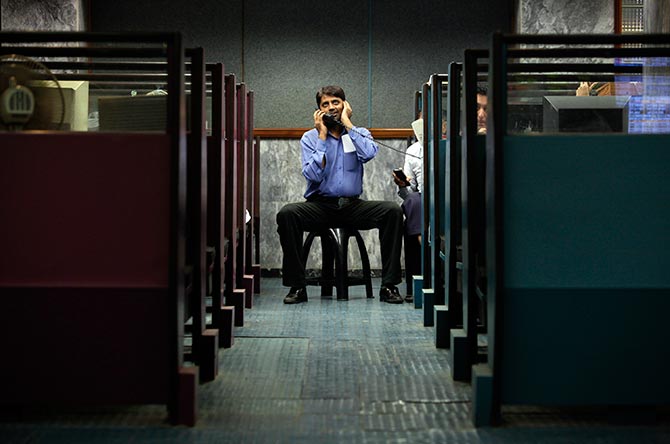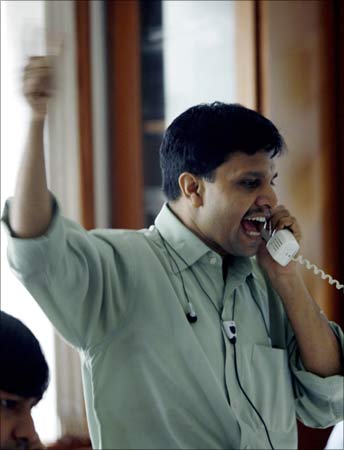 | « Back to article | Print this article |
6 phone interview mistakes you are making
Before answering that call from your prospective employer, make sure you're mentally prepared to answer questions like career expectations, reimbursement, notice period and more.
For beginners, here's some help to get started with.
A telephone interview is a job applicant's first chance of making a strong impression on the recruiter.
However, most candidates tend to take this stage of recruitment very lightly and goof-up to the extent of spoiling their chances of getting hired.
The following article will highlight the most common mistakes made by job seekers while being interviewed over the phone.
1. Not being serious because you thought it wasn’t actually an interview
Some candidates treat a phone interview as if it is just a formality where the HR professionals make the call just to know you better.
On the contrary, phone interviews are highly important as they help employers narrow down the vast pool of candidates and decide who gets to move a step ahead in the recruitment process.
If you wish to join a particular company you need the opportunity to interact with the recruiters again, which will only be possible if you excel at your phone interview.
Devika Arora is a professional writer and blogger with special focus on career building and job search. She is currently working with Naukrigulf.com, a job search portal addressing employment needs in the Middle East.
Please click NEXT to continue reading
2. Not preparing for a detailed interaction
You ought to prepare for the phone interview, just like you would for a personal one where you and the recruiting manager are face to face.
You must study about the company, thoroughly read the job description and practice answers to the commonly asked questions.
Some interviews can be a short screening, but you may not always be lucky as other interviews may require you to answer in-depth questions related to work experience, your previous roles and responsibilities and reasons for leaving former company, which may lead to tricky behavioural questions.
Please click NEXT to continue reading...
3. Taking the call in a noisy place
This may sound like the most basic advice, but believe it or not there are plenty of candidates who take calls in crowded public areas.
Some of the applicants, in spite of being home, forget to turn down the volume of the television or have dogs barking in the background or face interruptions from kids.
If you're at work, make sure you are away from your co-workers when you talk.
You must find a quiet spot where you can focus on your answers; else you'll remain distracted and may mess up the interview.
Please click NEXT to continue reading...
4. Using an unreliable phone connection
If we were living in the past decade, the obvious advice would be to use a landline instead of a cell phone as landlines are reliable and unlike mobile phones, their network doesn't drop.
But nowadays, one does not always have access to the landline so using cell phone is inevitable.
The key to a smooth interview is sound clarity and good reception so the call doesn't drop.
This will ensure a smooth flow of the interview and won't annoy the caller.
Please click NEXT to continue reading...
5. Not focusing on the tone of your voice
A face-to-face interview gives you many chances of demonstrating how you feel.
Whether it is eye contact, hand gestures, facial expressions or body language -- they all convey certain kind of signals about your confidence levels, enthusiasm and interest.
But a phone interview offers limited scope for all this.
As the interviewer cannot see you, you have to give more importance to the tone of your voice. You must sound upbeat, engaged and friendly.
Please click NEXT to continue reading...
6. Not knowing how to answer questions about salary expectations and availability
Phone interviews are used to weed out candidates with incompatibilities.
Phone interviews are also intended to gauge the kind of salary package you are aiming for.
So before you sit down to answer interview questions, make sure you have answers to basic questions.
If you can't be upright and give them an answer they are looking for, they will find someone who can.






